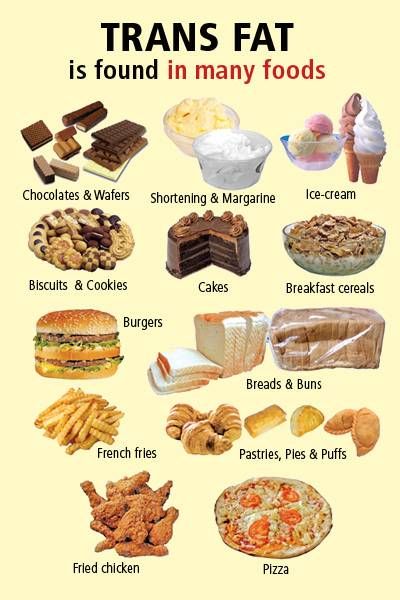Facts about fats: Trans fat, health risks, and is there a better alternative?
Author’s note: Fat is a controversial topic but let’s cut through the chatter and delve into fat facts. This is the first of an updated three-part series about dietary fats.
I’m not writing about “diets” per se, in this column. As reported by the Harvard School of Public Health, since the 1960s, when experts started advising people to eat less fat— based on the belief that a high-fat diet led to a high-fat body — obesity has skyrocketed. Recent evidence suggests that all those years of focusing on ways to get fat out of foods has actually contributed to the obesity epidemic.
In upcoming columns, I’ll discuss what constitutes the “best diet” in terms of nutrition and correlation with heart health.
Artificial trans fats (or trans-unsaturated fatty acids or trans fatty acids) date back to the early 1900s when German chemist Wilhelm Normann treated vegetable and fish oils with hydrogen gas to make them solid or semi-solid at room temperature.
Much cheaper than animal fats, partially hydrogenated oils became the foundation of processed and convenience foods.
While butter and beef tallow consumption dropped, consumption of margarine and other hydrogenated oil products like “shortening” soared through years following World War II.

Due to labeling loopholes, although trans fat is “banned” in many countries, others allow different amounts of trans fat in processed foods, including the U.S.
As reported in Science Daily, researchers in the 1960s studied people with elevated “bad” LDL cholesterol and coronary heart disease, and linked the conditions to diets high in saturated fat — the populations they studied obtained their saturated fat from animal products, almost exclusively. Health ministries around the world thus published dietary guidelines recommending restricting saturated fats across the board.
At the time, it was thought that since trans fat was made from vegetable oils, it was healthier. But, subsequent studies found that any amount of synthetically produced trans fat contributes to a higher risk for heart disease.
[By the way, a small amount of trans fat is found naturally in certain meat and milk products, because it’s naturally produced in the stomachs of grazing animals like cows and sheep. It’s a minuscule percentage in an average person’s diet, and of course, those who avoid eating ruminants avoid it completely.
To learn more about how hydrogenation of vegetable oils “amounts to a vast chemical experiment whose consequences could not have been known at first” click here to learn more about the “hydrogenation bomb.”]
Why are people still consuming trans fat?
The American Heart Association writes that trans fats became popular because they’re easy to use, inexpensive to produce and they have a long shelf-life. They give taste and texture to foods, and restaurants and fast food outlets love trans fats because this cheap oil can be reused many times in commercial fryers — and typically are.
Not only does reusing trans fat-laden cooking oils increase the amount of trans fat but reusing also increases the risk for rancidity and the creation of toxic free radicals.
So, wouldn’t you think that all countries should eliminate the use? A number of countries have already moved to restrict or ban trans fats, including Ecuador, Denmark, Switzerland, Canada, Britain, and the United States. However, Due to labeling loopholes, although trans fat is “banned” in many countries, others allow different amounts of trans fat in processed foods, including the U.S. Read more here.
But many countries in Asia and Africa have no such restrictions. In India, they use vanaspati, a reheated palm oil that is very high in trans fats and linked to soaring rates of heart disease among South Asians.

India’s heart disease epidemic increased due to dietary patterns and doctors are urging people to avoid reusing any oil for frying food products as it increases the proportion of trans fats. (Talengana Today)
It’s not just poor countries that are hooked on trans fats. Foods made with trans fats have been long the foundation of consumer’s diets, regardless of economic status. Fast and frozen foods, cakes, refrigerated dough, microwave popcorn, non-dairy creamers, baking mixes, frostings, margarine, and shortening are so damn cheap, but at what cost to health?
And since trans fat and hydrogenated fat are supposed to be going the way of the dinosaur, what are manufacturers using instead?
Replacements to trans fat include unsaturated or monounsaturated plant oils like canola, corn, soy and olive oil, and coconut oil, which is mainly saturated fat. Some use animal saturated fats — butter, lard, tallow (beef fat). But these fats are too expensive for commercial use.
Palm oil has replaced trans fat in many of the convenience foods above. It’s highly saturated and although packages carry claims like natural” and “healthier” than trans fat, there is no evidence that palm oil is a “healthy” oil.
More about saturated fat to come in an upcoming column. (Hint: it’s not just the fat, it’s the amount of some fats in your diet that makes it “healthy” or not.)

Trans fats should be eliminated worldwide by 2023, W.H.O. says. (Arshad Arbab/European Pressphoto Agency)
Palm oil replaces trans fat
According to the World Wildlife Fund (WWF), there are two types of palm oil, one is ‘crude’, made from squeezing the fruit, and the other is from the kernel, made from crushing the stone in the middle of the fruit.
Similar to trans fat-laden shortenings, food manufacturers favor palm oil — because it’s cheap, shelf-stable, and has a creamy texture. It contains no trans-fatty acids — contains an equal amount of saturated and unsaturated fats.
The Guardian reports that worldwide use of palm oil has exploded — on average each person consumes eight kilos of palm oil yearly! And why? Because it has replaced trans fat, because it fits the bill. Solid or semi-solid at room temperature, palm oil doesn’t get rancid sitting on the shelf (closed).
And it is cheap.
Is palm oil any better for you than trans fats?
I think that palm oil is no better for you than trans fats, and isn’t that beside the point? Isn’t replacing trans fat with palm oil ignoring the problem of overconsumption of overly processed foods? Kind of like replacing cigarettes with vaping — swapping one addiction for another doesn’t make vaping a healthy alternative.
Next week I’ll explore the increase in the use of palm oil and its costs to human health and the environment. To follow will be an update on saturated fats followed by what research shows are “best” and “worst” fats.
And I’ll post some delicious recipes.
Sources:
Center for Science In The Public Interest. Artificial trans fat: a timeline.
Food Navigator Latam. PAHO develops action plan to remove trans-fatty acids from industrial food production.
Health Policy Watch. Five billion people still at risk from industrial trans fat exposure. Heart.org. Trans fats.
Science Chronicle. Repeated use of oil leads to increased trans fat content.
Science Daily. Not all saturated fats are equal when it comes to heart health.
The Guardian. How the world got hooked on palm oil.
The New York Times: Health. Trans fats should be eliminated worldwide by 2023, W.H.O. says.
Wikipedia. Trans fat.
World Public Health Nutrition. The hydrogenation bomb.
________________________
Food, Nutrition, and Your Health columnist Susan Burke March moved to Cuenca after 35 years as a Registered and Licensed Dietitian and Certified Diabetes Educator in the United States. She currently serves as the Country Representative from Ecuador for the Academy of Nutrition and Dietetics.
Susan helps people attain better weight and health, and reduce the risk of heart disease, diabetes, and other conditions that can be improved with smart lifestyle modifications.
Susan is offering “Free” 20-minute consultations for just a $15 donation to one of the important foundations here in Cuenca. It’s a perfect time to address issues such as cooking at home, strategies for weight loss, or boosting your immunity by improving your diet.
Contact her at SusantheDietitian@gmail.com





















